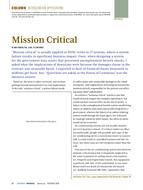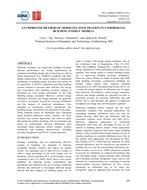Engineers who must design equipment utilizing pure substances. as for example. the fluorocarbon refrigerants. oxygen, ammonia, and argon, must have available the best estimates of their thermodynamic properties. At least, the data must be internally consistent quite apart from any experimental bias. Key data in achieving good. internal consistency are that of the critical point especially the critical temperature, pressure, and density.
Indeed, equations of state and expressions for the vapor pressure of pure substances must be constrained at the critical point to provide consistency for thermodynamic property calculations. Also, accurate determinations of critical parameters are needed to predict and correlate physical properties based on the theorem of corresponding states. Critical properties must. also correlate with two-phase liquid-vapor data.
The intent of this paper is to show that many of the critical densities given in the current set of ASHRAE property tablesl do not correlate’with the coexistence data, i.e., the saturated liquid and vapor densities. Hence, these data cannot be considered internally consistent. The correlation criterion is given and the data are compared to this criterion to show their deviation. A tentative approach to the determination of critical properties, particularly the density, is then given.
Citation: ASHRAE Transactions, Volume 83, Part 2, Halifax, NS
Product Details
- Published:
- 1977
- Number of Pages:
- 13
- File Size:
- 1 file , 1 MB
- Product Code(s):
- D-HA-2464


